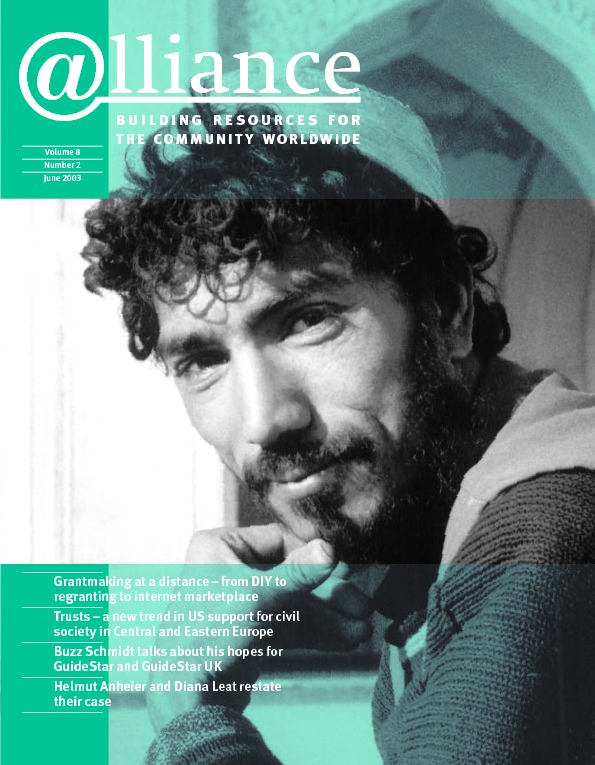Comic Relief has been funding international development work through UK charities for many years – for reasons of pragmatism and cost, and a belief that UK NGOs have a valuable contribution to make to international development. Recently we have begun to consider various options for funding direct to NGOs in Africa.
Direct funding fits with Comic Relief’s principles of supporting work where African people, organizations and social movements, and the people they represent, are actually driving the work.
Why route grants through UK charities?
Comic Relief has a small staff team based in the UK. We manage a portfolio of around 300 grants involving over 100 UK NGOs and hundreds of organizations in Africa. Given the size of this portfolio, it is a real asset to have easy and regular contact with grantees, undertake face-to-face assessments, and enjoy the regulatory framework of the Charity Commission.
UK NGOs working with organizations in Africa can undertake initial programme research, develop new programmes of work, and evaluate them, and Comic Relief is willing to fund all these phases of a development programme. This means we don’t have to do it ourselves, which keeps our transaction costs low.
The diversity of UK NGOs means there is always going to be a range of exciting work to fund. Recently, we have supported many diaspora organizations as they have the potential to offer a more personal and long-term link between the UK and Africa and improve the representation of African issues and priorities.
So why direct fund?
Direct funding gives southern NGOs greater control and understanding of the grantmaking process. By cutting out intermediaries, Comic Relief could increase the amount being spent in the South. There is also potential for a broader spectrum of African NGOs to access funding if it is not limited to those that have an established relationship with a UK NGO.
Direct funding would enable southern NGOs to benefit more fully from Comic Relief’s willingness to fund core organizational costs – benefits that are not always passed on by UK NGOs. Funds can be used better if African organizations can determine their own organizational development priorities.
Finally there is potential to improve accountability to ordinary people on the ground who are benefiting from grants, if the source of the money is closer to them.
How might it be done?
There are a variety of direct funding mechanisms. The following three represent different points on the direct funding spectrum.
- Supporting UK charities or consortia with a grantmaking facility, based either in their UK office or in Africa. Comic Relief has funded a range of such initiatives.[1] In most cases the funding is distributed as small grants to local NGOs and community groups, usually for organizational development.
- Supporting local grantmakers This involves delegating grantmaking to an African grantmaker that shares our priorities, values and principles. We’ve made one such grant to the African Women’s Development Fund based in Ghana (via a UK partner), whereby our funds ‘capitalized’ the grants pot as well as providing money for the effective administration of the fund.
- Making direct grants to African organizations As yet we’ve made no grants in this category.
Risks and opportunities
All the risks and opportunities identified below apply to all models of grantmaking to some degree, but both risks and opportunities are likely to grow with more devolved grantmaking.
* Costs involved in developing an effective relationship with a grantmaker in a distant location with whom we may not have a history of working, ensuring grantmaking priorities and processes fit Comic Relief’s, and so on.
Yes or no to funding Africa direct?
Local grantmaking fits well with Comic Relief principles and for this reason we will continue to explore it. But there is a lot of excellent development work happening through our current grantmaking model, and it is likely that most of our grantmaking will continue to operate in this way. Changes are likely to be gradual and evolutionary.
What is clear is the value to Comic Relief of having a variety of models for getting funds to Africa. The challenge for us and other grantmakers is to continually reassess which models work best in which scenarios.
1 The Consortium on Street Children administers a grants scheme whereby southern members of the consortium apply for grants for organizational development. International Co-operation for Development in Somaliland runs a small grants scheme for Somali NGOs to improve organizational capacity and purchase one-off capital items.
Pontso Mafethe is an Africa grants officer at Comic Relief. She can be contacted at p.maftethe@comicrelief.org.uk
Richard Graham is head of international grants at Comic Relief. He can be contacted at R.Graham@comicrelief.org.uk
For more information
See http://www.comicrelief.com





Comments (0)